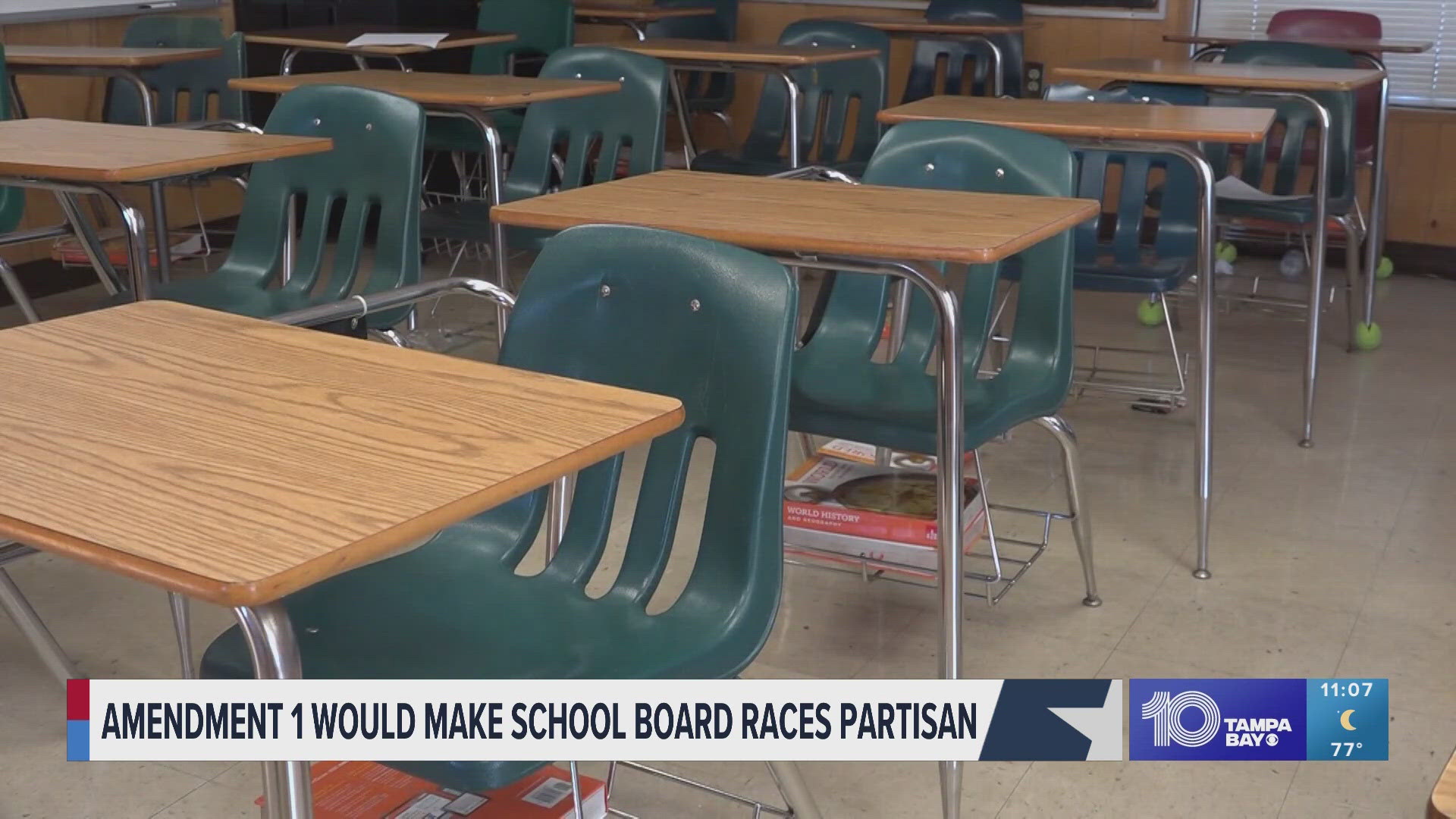SARASOTA, Fla. — Several major amendments are on the ballot in Florida, including one that could dramatically change school board races but has received a fraction of the attention of other amendments on abortion and marijuana.
Amendment 1 asks voters if they want candidates for school boards to pick a party if they want to run.
Supporters believe it will add transparency to the process. Those opposed believe it will disenfranchise voters.
At the headquarters for the Social Equity Through Education Alliance, volunteers in Sarasota furiously tap phones and laptops, sending text messages to young voters asking them to vote no on Amendment 1.
“We're targeting 1.1 million youth voters specifically, and [Tuesday] we were able to reach over 200,000 of them in a single day,” SEE Alliance Executive Director Zander Moricz said.
He says the group plans to spend more than $100,000 in messaging against the amendment that would require party affiliation to run for school board, including mailers and a TV commercial.
“[This] is not something anyone's asking for,” he says. “So where did it come from? Did it come from citizens? Did it come from parents? Did it come from teachers? No, it came from Florida’s government, which seeks to build power for itself through our public schools.
Last year, Florida lawmakers passed a bill seeking to undo a decades-old change to the constitution that made school board races non-partisan, arguing their goal is for more transparency.
“It is only fair that the citizens of Florida know exactly what they are voting for,” said Rep. Joel Rudman, MD (R-Navarre) during a debate on the bill. “It is to ensure that elected school board members reflect the social values of their communities.”
The sponsor of the bill, Rep. Spencer Roach (R-Ft. Myers), has said voters are increasingly more interested in local school board races and they deserve to know the “values” of candidates through party affiliation.
“I just don't see why anyone should be able to use the cover of the law to hide who they are from voters,” he said during a recent interview.
If approved, voters registered as “no party affiliation” would be prohibited from voting in school board primaries because Florida is a closed primary state. Only four states currently require partisan school board races.

